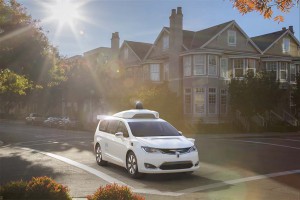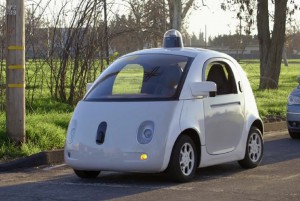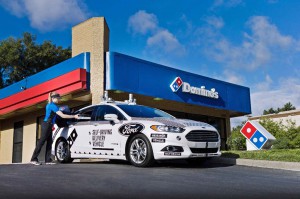Federal lawmakers could take a big step closer to enabling widespread testing of autonomous and even fully driverless vehicles when the U.S. House of Representatives votes next week on a bill that would greatly expand the auto industry’s ability to test such vehicles on public roads.
The measure, which was approved unanimously by a House panel in July would essential usurp the patchwork of state regulations that has slowly begun falling into place, and it would allow prototype vehicles to sidestep some of the current federal safety regulations that apply to conventional cars, trucks and crossovers.
“Self-driving vehicles stand to make our transportation system safer and more efficient,” House Majority Leader Kevin McCarthy, a Republican, said in a statement. “Advancing this technology to road-ready requires government policy that encourages continued testing and development.”
(Skip the tip: Ford and Domino’s are testing driverless pizza delivery. Click Here for more.)
Under the proposal, as approved by the House panel, automakers and companies specializing in the development of autonomous vehicles – such as Google spin-off Waymo – would be able to apply for exemptions covering 25,000 vehicles. That cap would rise to 100,000 vehicles within three years.
Automakers have been seeking exemptions that would, for example, let them test fully driverless vehicles that would have no human “operator” at the ready to take over in an emergency. In fact, the bill would allow for prototypes that have no steering wheel or pedals for a human to operate under any condition.
That’s something that Waymo has been pushing for as it targets what industry experts see as the Holy Grail of autonomy: vehicles that could operate without a driver under all conditions and on all roads. In technical terms, that is known as Level 5 autonomy.
(Click Here for details about Waymo’s autonomous ride-sharing pilot program in Phoenix.)
Proponents of autonomous vehicles – a list which includes former NHTSA chief Mark Rosekind – believe that the technology will pay off in numerous ways:
- With human error blamed for 94% of all fatal crashes, advocates see the possibility of reaching an era of zero fatalities;
- Autonomous vehicles should be able to squeeze more vehicles onto existing roads by, among other things, allowing “platooning,” letting trucks and cars ride almost bumper-to-bumper; and
- By smoothing out traffic flow, there should be a concurrent improvement in the overall fuel efficiency of the U.S. highway fleet.
Meanwhile, ride-sharing services like Lyft, fast-food chains like Domino’s, and delivery services such as UPS, are all betting their services will become more affordable by taking drivers out of the equation.
“Congress can bring a host of benefits to Americans by helping to bring self-driving vehicles to our roads as quickly as possible,” said The Alliance of Automobile Manufacters, a trade group, in a statement.
Not everyone is pleased with what’s going before the full House as early as next Wednesday.
While it issued its own statement declaring that, “Responsible regulation goes hand-in-hand with innovation,” the California-based non-profit, Consumer Watchdog, has raised strong doubts about the proposed bill. It questioned whether the measure is weak and insufficient,” and stressed that, “Safety must come before the automakers’ bottom lines.”
While states would lose authority over some aspects of autonomous vehicle testing, they will still be able to regulate licensing and registration, insurance and safety inspections. Critics like Consumer Watchdog have been demanding that the National Highway Traffic Safety Administration, meanwhile, be given more authority to oversee autonomous vehicle testing.
The House bill is coming to the full floor under so-called fast-track rules. That means that representatives can only vote yea or nay and will be barred from tacking on riders and amendments. Meanwhile, a similar measure is being worked up in the Senate but it is unclear when it would be turned into a formal bill and work its way to the floor for a vote in that chamber.
(Lyft lifts page from Uber, establishes new self-driving vehicle unit. Click Here for the story.)




These cars are going to be a blessing for some like us old people and the handicap but I’m worried they me be used by terrorist. They could load then with explosives and have them drive so somewhere like the middle of Time Square then detonate them. Scary thought.
I believe a standard set of safety tests and required simulations needs to be developed to prove out the the safety of the vehicle before allowing broad testing on public roads. These are public roads, paid for by taxes, not private test laboratories for automakers.